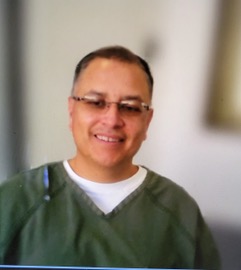
My current circumstances are as such: I am convicted and sentenced to Life plus 25 years for the murder of Garland Taylor on August 16, 2004. I was tried and convicted in 2006, and despite numerous appeals my case, claims of innocence, and constitutional rights (in particular, the Sixth Amendment guarantee of confronting my accuser) have consistently been ignored by both state and federal judiciaries.
That being said, my dream is the same as my objective: JUSTICE!
I am aware that justice as a dream is a difficult one. Especially because, to most, it’s an idea as intangible as it is an abstract. But to me, justice is neither intangible or abstract, it’s just elusive.
At the beginning of this journey justice was synonymous with freedom. But after nearly two decades of disappointments and frustrations with a legal system unwilling to either uphold the law or acknowledge wrongdoing I finally came to see that while freedom might still be on the horizon at some point in this life, it’s highly improbable.
Having been a federal prosecutor and a defense attorney for a combined 30 years, I am very versed on the fundamental constitutional rights of every citizen to a fair trial. One of the most sacred and basic trial rights is the right to confront one’s principal accuser. Mr. Chavez was denied this fundamental constitutional right and he did not receive a fair trial. And what should shake us all to the core is that he is innocent, and yet no state or federal court has to date saw fit to allow him to present his side in a full and fair trial.
However highly improbable is not impossible, a realization that helped me realize that justice isn’t about whether or not I am exonerated. Because it’s also about bringing accountability and reform to a system that is systematically broken at its core. Justice is about showing the world just how unjust our justice system is — because that’s what will make it change.
My petition on change.org is a necessary long shot and certainly isn’t a panacea for combating systemic corruption. But as free individuals who stand for such lofty ideals as freedom, equality, and the rule of law oversight is a necessary measure to be taken — which is the basis of this petition.
On this site you will find links to my recorded podcast episodes. Please forgive the poor sound quality, episodes were recorded from a prison payphone, and while I don’t currently record new episode, I do write an ongoing newsletter where I bring readers inside the fold of a man wrongfully convicted. The newsletter is hosted on the Substack platform, it’s free, and I wholeheartedly encourage everyone to subscribe.
Looking forward, I envision a film or multi-episode documentary where the entirety of the story can be told in a way that makes future wrongful convictions impossible to ignore. If you or someone you know is a talented director, filmmaker, or otherwise an advocate please visit the contact page and reach out to us.
